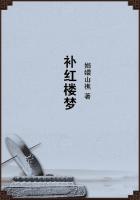The external probability therefore against them is enormous, and the internal probability is not less: for they are trivial and unmeaning, devoid of delicacy and subtlety, wanting in a single fine expression. And even if this be matter of dispute, there can be no dispute that there are found in them many plagiarisms, inappropriately borrowed, which is a common note of forgery. They imitate Plato, who never imitates either himself or any one else; reminiscences of the Republic and the Laws are continually recurring in them; they are too like him and also too unlike him, to be genuine (see especially Karsten, Commentio Critica de Platonis quae feruntur Epistolis). They are full of egotism, self-assertion, affectation, faults which of all writers Plato was most careful to avoid, and into which he was least likely to fall. They abound in obscurities, irrelevancies, solecisms, pleonasms, inconsistencies, awkwardnesses of construction, wrong uses of words. They also contain historical blunders, such as the statement respecting Hipparinus and Nysaeus, the nephews of Dion, who are said to 'have been well inclined to philosophy, and well able to dispose the mind of their brother Dionysius in the same course,' at a time when they could not have been more than six or seven years of age--also foolish allusions, such as the comparison of the Athenian empire to the empire of Darius, which show a spirit very different from that of Plato; and mistakes of fact, as e.g. about the Thirty Tyrants, whom the writer of the letters seems to have confused with certain inferior magistrates, ****** them in all fifty-one. These palpable errors and absurdities are absolutely irreconcileable with their genuineness. And as they appear to have a common parentage, the more they are studied, the more they will be found to furnish evidence against themselves. The Seventh, which is thought to be the most important of these Epistles, has affinities with the Third and the Eighth, and is quite as impossible and inconsistent as the rest. It is therefore involved in the same condemnation.--The final conclusion is that neither the Seventh nor any other of them, when carefully analyzed, can be imagined to have proceeded from the hand or mind of Plato. The other testimonies to the voyages of Plato to Sicily and the court of Dionysius are all of them later by several centuries than the events to which they refer. No extant writer mentions them older than Cicero and Cornelius Nepos. It does not seem impossible that so attractive a theme as the meeting of a philosopher and a tyrant, once imagined by the genius of a Sophist, may have passed into a romance which became famous in Hellas and the world. It may have created one of the mists of history, like the Trojan war or the legend of Arthur, which we are unable to penetrate. In the age of Cicero, and still more in that of Diogenes Laertius and Appuleius, many other legends had gathered around the personality of Plato,--more voyages, more journeys to visit tyrants and Pythagorean philosophers. But if, as we agree with Karsten in supposing, they are the forgery of some rhetorician or sophist, we cannot agree with him in also supposing that they are of any historical value, the rather as there is no early independent testimony by which they are supported or with which they can be compared.
IV. There is another subject to which I must briefly call attention, lest I should seem to have overlooked it. Dr. Henry Jackson, of Trinity College, Cambridge, in a series of articles which he has contributed to the Journal of Philology, has put forward an entirely new explanation of the Platonic 'Ideas.' He supposes that in the mind of Plato they took, at different times in his life, two essentially different forms:--an earlier one which is found chiefly in the Republic and the Phaedo, and a later, which appears in the Theaetetus, Philebus, Sophist, Politicus, Parmenides, Timaeus. In the first stage of his philosophy Plato attributed Ideas to all things, at any rate to all things which have classes or common notions:
these he supposed to exist only by participation in them. In the later Dialogues he no longer included in them manufactured articles and ideas of relation, but restricted them to 'types of nature,' and having become convinced that the many cannot be parts of the one, for the idea of participation in them he substituted imitation of them. To quote Dr.
Jackson's own expressions,--'whereas in the period of the Republic and the Phaedo, it was proposed to pass through ontology to the sciences, in the period of the Parmenides and the Philebus, it is proposed to pass through the sciences to ontology': or, as he repeats in nearly the same words,--'whereas in the Republic and in the Phaedo he had dreamt of passing through ontology to the sciences, he is now content to pass through the sciences to ontology.'
This theory is supposed to be based on Aristotle's Metaphysics, a passage containing an account of the ideas, which hitherto scholars have found impossible to reconcile with the statements of Plato himself. The preparations for the new departure are discovered in the Parmenides and in the Theaetetus; and it is said to be expressed under a different form by the (Greek) and the (Greek) of the Philebus. The (Greek) of the Philebus is the principle which gives form and measure to the (Greek); and in the 'Later Theory' is held to be the (Greek) or (Greek) which converts the Infinite or Indefinite into ideas. They are neither (Greek) nor (Greek), but belong to the (Greek) which partakes of both.
With great respect for the learning and ability of Dr. Jackson, I find myself unable to agree in this newly fashioned doctrine of the Ideas, which he ascribes to Plato. I have not the space to go into the question fully;but I will briefly state some objections which are, I think, fatal to it.















